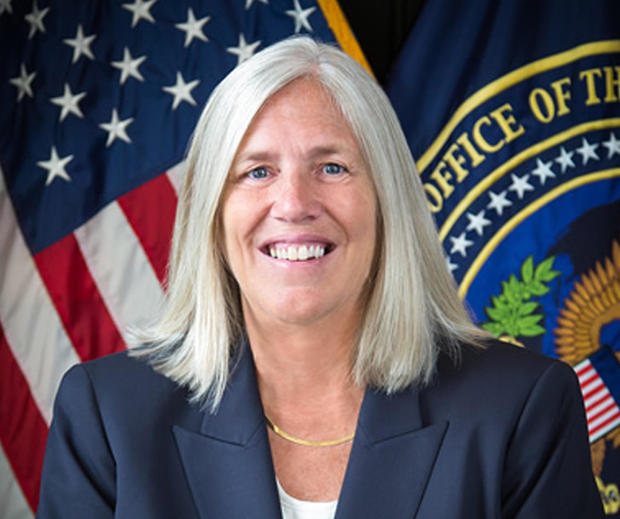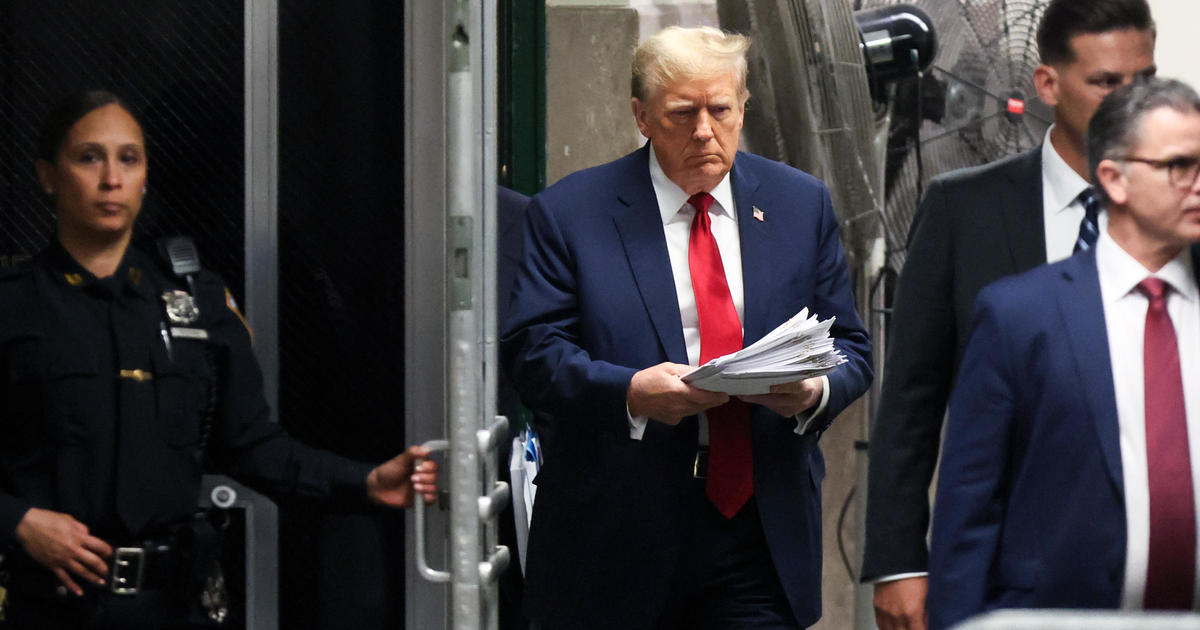Former No. 2 U.S. intel official says of departure, "I didn't want to be anyone's agenda"
The former No. 2 U.S. intelligence official said this week that she decided to step away from a chance to hold the top role out of concerns about political divisions and that insistence on her part could have driven a bigger wedge between President Trump and the U.S. intelligence community.
Sue Gordon, a career intelligence official who served as deputy to former Director of National Intelligence (DNI) Dan Coats — and by statute was slated to become acting DNI after Coats' departure in August — instead resigned her position when it became clear the president would oppose her candidacy.
"I didn't want to be another source of rub between the president and the intelligence community," Gordon said, "What was most important was that the president got intelligence."
She said she also worried about increasingly divisive public narratives about her role — as she put it, about serving as a "nail for other people's hammers."
"Depending on which side of the political spectrum you came on," Gordon said, "I was either evil incarnate deep-state who clearly must be gotten rid of — or a great intelligence professional who had stood up and given truth to power."
"And the problem was, I didn't want to be anyone's agenda," she said.
Gordon spoke with Intelligence Matters host and CBS senior national security contributor Michael Morell, who interviewed Gordon on Monday at an event held by the Michael V. Hayden Center at George Mason University's Schar School of Policy and Government.
Her resignation made headlines last summer after the president announced on Twitter that she would not assume the acting DNI role, now held by former National Counterintelligence Center director Joseph Maguire. Her handwritten note to President Trump, submitted alongside her resignation letter and later released by the White House, said it was not her "preference" to leave. It was seen by some as a small but symbolic act of rebellion.
"I offer this letter as an act of respect & patriotism, not preference," she wrote to the president on August 8. "You should have your team," she wrote, signing it, "Godspeed, Sue."
In Monday's interview, Gordon said that she drafted the note in her car outside the White House, wary that she would not be able to speak in person to Mr. Trump and that submitting only a typed resignation letter could be seen as "rude."
"'I should dash off a handwritten note, just to not be rude,'" Gordon said she decided. "And so the note to the president was just really intended to say, 'You don't have to do this…I'm not resigning because I'm trying to get away. I'm giving you room and being respectful. If that's not what you want, don't do this," she said.
Gordon, who spent over three decades at the CIA and in other intelligence posts before being appointed in 2017 by Mr. Trump to serve as Coats' deputy, had bipartisan backing in Congress and was known to be admired for her leadership within the intelligence community. Since her resignation, she has begun working as a consultant for Microsoft and as a senior intelligence advisor to the Intelligence and National Security Alliance.
Maguire, the current acting DNI, must by law be formally nominated to the role or replaced by early March. His standing with the White House is unclear; he publicly defended his decision to withhold a whistleblower complaint that triggered the impeachment inquiry from congress but also said the complainant, a CIA employee, had acted appropriately. The New York Times reported earlier this week that "fluid" conversations about potential replacements for Maguire are in process within the White House.
In Monday's interview, Gordon said it was imperative that leaders within the intelligence community speak out publicly when and if there was a need to clarify what intelligence or the intelligence community said about a given issue. She cited Coats' repeated public and private defenses of intelligence community assessments, most notably a 2018 statement issued after President Trump's controversial 2018 press conference with Vladimir Putin.
"[Director Coats] just came out and corrected the record. And I think what that did was two things," Gordon said. "I think we have kept the intelligence, and I think the current leaders have kept the intelligence community, by and large, with their eyes in the boat. And the second is, just established that there are certain conversations that we aren't going to-- you aren't going to be able to say about the intelligence community."
She also responded to an ongoing standoff between congressional intelligence committees and the intelligence community over annual public testimony on global threats. "It's a difficult setting," she said, "because you can state things openly but when you're challenged, it is hard to defend openly."
Still, she said, the American public is necessarily involved in matters of national security, making an open dialogue with intelligence leadership increasingly important.
"I do think that what we've learned over time is, national security issues spill out into the public. They affect the public," Gordon said. "I can't think of a time that the leadership hasn't spoken up, but I think they're going to have to be ready to speak up, because every once in a while you have to correct the record. You always have. And I suspect you always will."




